Choosing a dry closet for home
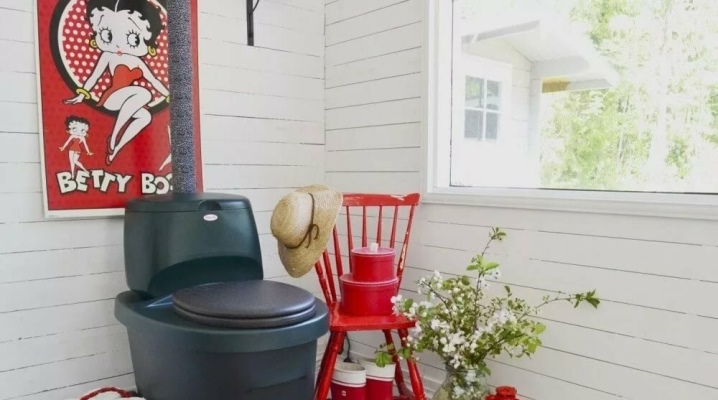
Dry closets can be attributed to the best inventions of mankind, which greatly facilitate life in a country house, which lacks a full-fledged sewage system. Modern manufacturers offer customers a wide range of dry closets for summer cottages and houses, differing both in price and in technical and operational characteristics. What is this construction? How does it work? How to choose a suitable model of a dry closet for a private house and for a city apartment?
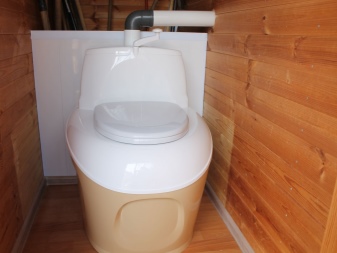
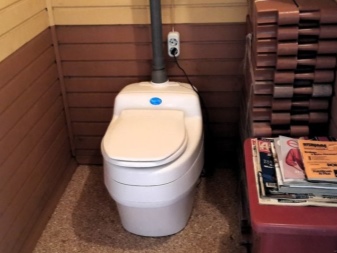
What it is?
It is customary to call dry closets a wide group of mobile and stationary structures intended for the disposal and processing of human waste products. The greatest demand for these structures is among the owners of private houses suitable for seasonal living (only in the warm season). They are also used in city apartments, where they are often used along with other devices designed to make life easier for the elderly and people with disabilities.
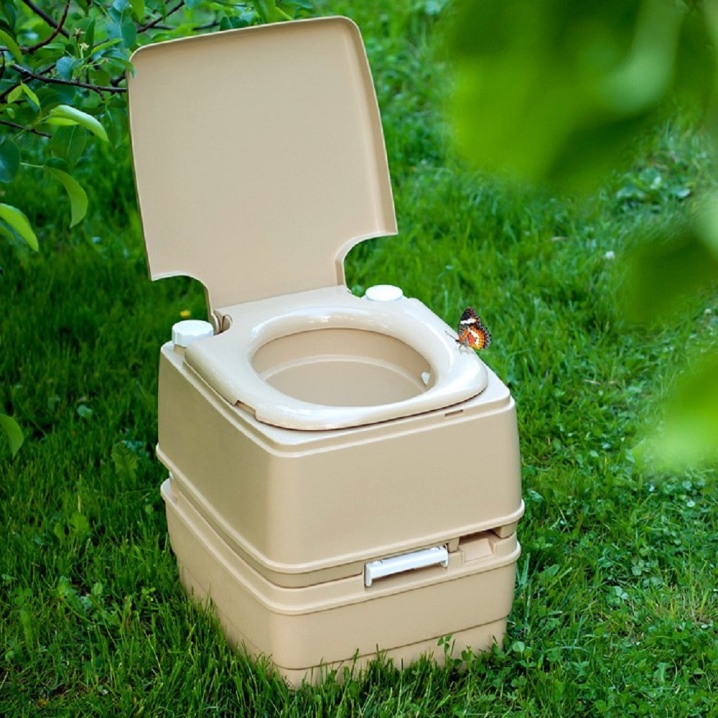
Most models of dry closets are compact designs consisting of two chambers. One chamber actually functions as a toilet bowl, the other is used to collect and decompose incoming waste while neutralizing unpleasant odors. The chambers are interconnected by a special valve (lock), which ensures the tightness of the second tank. Depending on the principle of operation of the dry closet, waste can decompose under the influence of active compounds and mixtures or accumulate in a special cassette, which, if necessary, is removed, cleaned, washed and installed back into the structure.
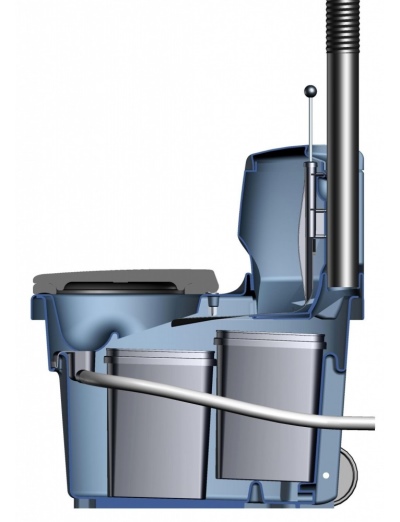
Views
The modern assortment of dry closets is represented by numerous models that differ from each other, first of all, in the features of the device and the principle of operation. The whole variety of assortment is usually divided into three main categories, described below.
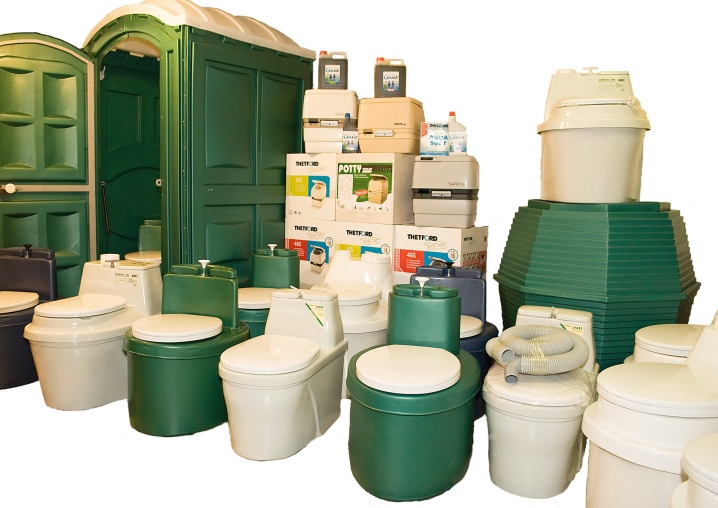
Liquid
Waste disposal in dry closets of this type occurs under the influence of various compounds that are added to the water in the flushing system. Such models are distinguished by an extremely simple configuration and device. In their upper part there is a water tank and a pump (pump) for flushing. In the lower part, in addition to auxiliary parts, there is a compartment for incoming waste. Both parts are united with each other by strong locks that ensure the tightness of the entire structure.
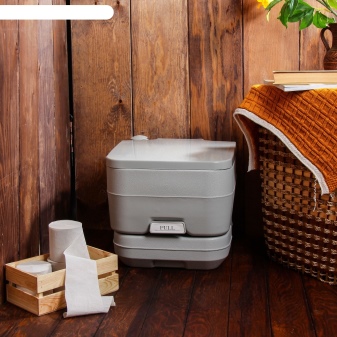
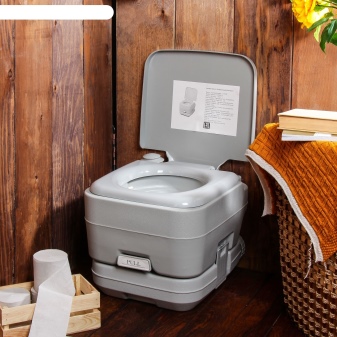
Most liquid models are equipped with special indicators that indicate the degree of filling of the storage tank. The green indicator indicates that the tank is empty or partially filled. The maximum filling of the tank is indicated by a red indicator.
The minimum weight of liquid-type models is about 4.5-5.5 kilograms (with empty storage tanks). The average height of the structures is about 32-45 centimeters.
The decomposition of waste in liquid-type dry closets is carried out using solutions. Their active components are aggressive chemicals or harmless microorganisms, whose activities are aimed at decomposing waste and neutralizing unpleasant odors.
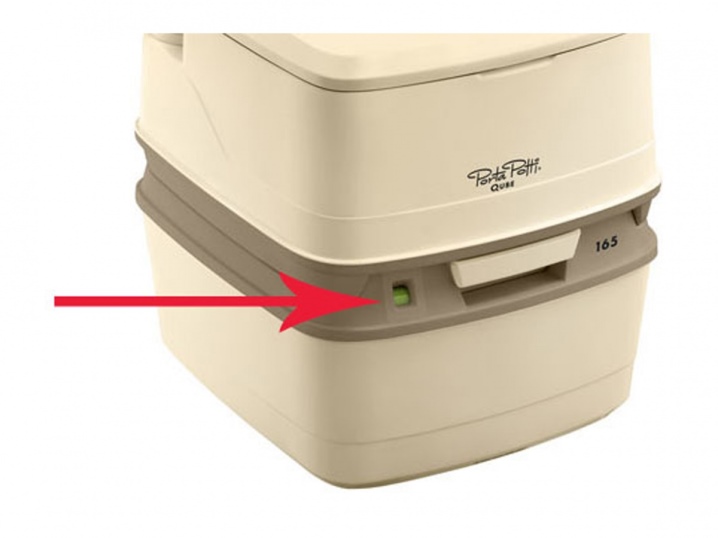
For the decomposition of waste in liquid dry closets, solutions of three types are used:
- based on ammonium;
- formaldehyde based;
- biological compounds
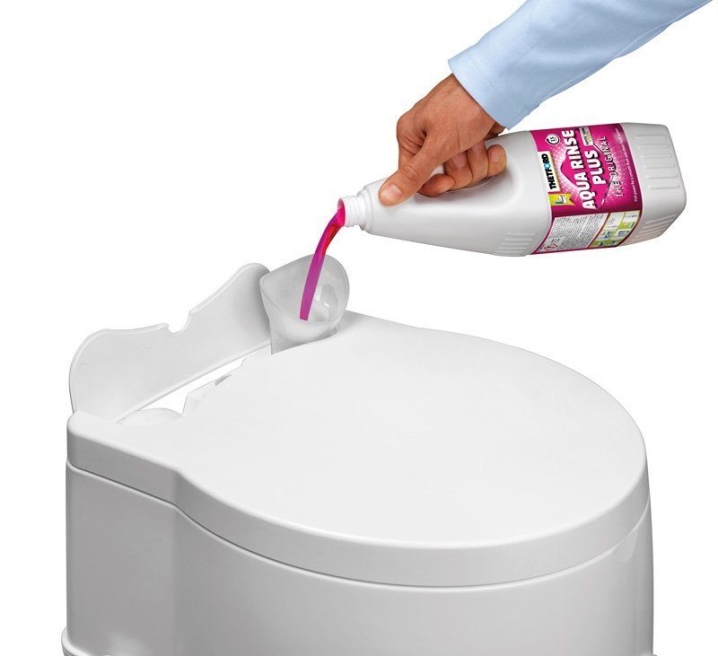
Ammonium-based solutions (although they belong to the category of chemicals) allow you to get harmless compost material from waste. One liter of such a solution (concentrate) is, on average, sufficient for 2-3 months of operation of a dry closet with a 20 liter reservoir.
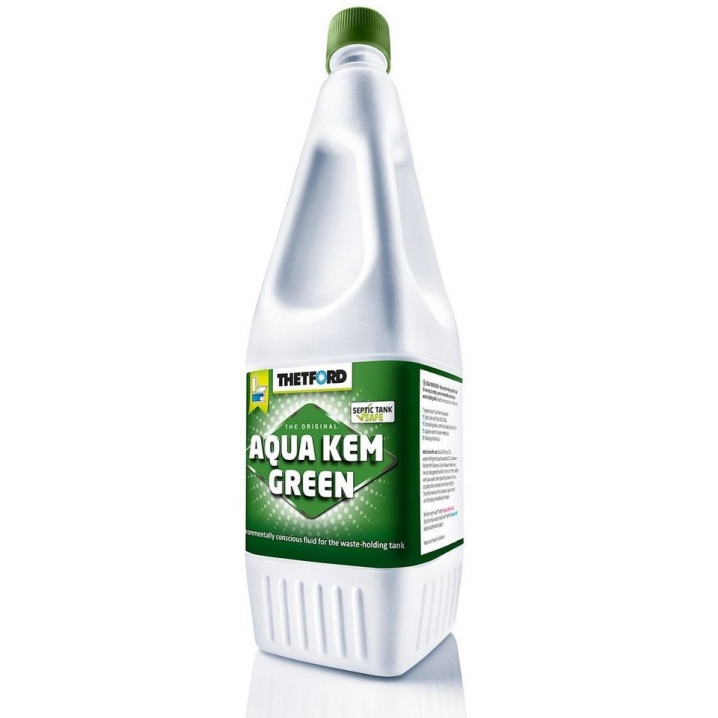
Formaldehyde-based fluids promote the rapid and efficient decomposition of waste, which is subsequently disposed of only through the central sewerage system. This requirement is due to the fact that under the influence of formaldehyde, waste becomes toxic, hazardous to humans and the environment. A liter of formaldehyde solution is usually enough for 3-4 months of maintenance of the dry closet.
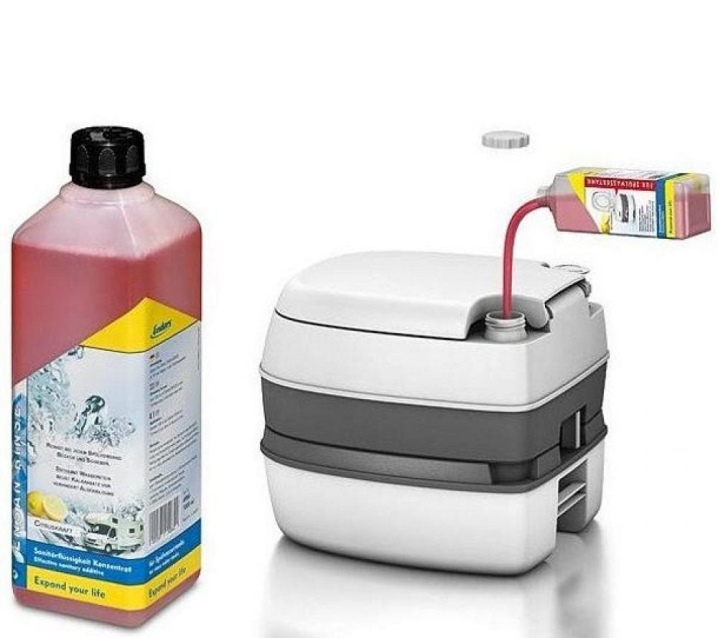
When using biological solutions, the decomposition of waste occurs as a result of the activity of bacteria. Their colonies are capable of converting almost all organic waste (including food) into a liquid and mushy substance, which can later be used as environmentally friendly and effective fertilizers for the garden. A liter of bio-solution is usually enough for 2-4 months of toilet operation.
Depending on the features of the internal structure of the dry closet, solutions are poured into its upper or lower part. In addition to solutions, special aromatic compounds are often used to neutralize unpleasant odors.
Peat
This type of dry closet is considered one of the most environmentally friendly. The main active component that contributes to the decomposition of waste inside the structure is ordinary peat. As a rule, it is placed in the lower part of the toilet, in which incoming human waste products are accumulated. In some models, sawdust is used along with peat, which absorbs excess moisture.
Peat promotes the processing of organic matter into compost, which can also be used as fertilizer. It should be noted that most models of dry closets of this type require a stationary installation with a ventilation system connected. This is due to the fact that in their design there is no system for pouring auxiliary agents that neutralize unpleasant odors.
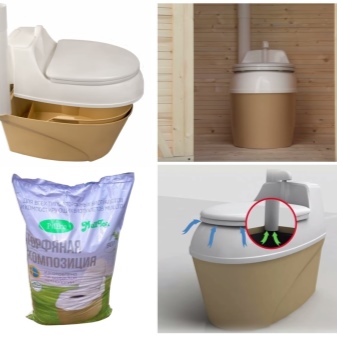
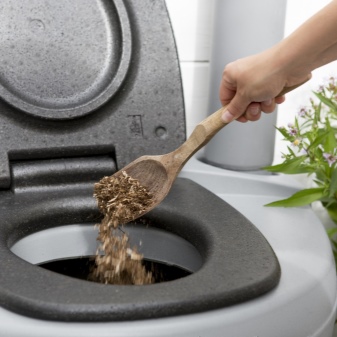
In operation, peat dry closets are quite economical and undemanding to maintenance. They are cleaned about once a month.
Electrical
This type of dry closet is somewhat more complicated than the previous two types. Just like peat structures, electric models are stationary, requiring connection not only to the ventilation system, but also to a source of electricity (outlet).
Waste entering the structure of this type is distributed in two separate tanks (one for solid waste, the other for liquid waste). Further, depending on the design device, liquid waste is sent to the sewer drain or evaporated. Solid waste, in turn, getting into a separate chamber, under the influence of a built-in heating element, turns into a dry mass. Removal of unpleasant odors from the room during the operation of the electric dry closet is provided with the help of a built-in fan.
Recycled waste is an environmentally friendly fertilizer that can be used to feed backyards. At the same time, recycled waste accumulates rather slowly, therefore, the tank of an electric dry closet is cleaned only 3-4 times a year.
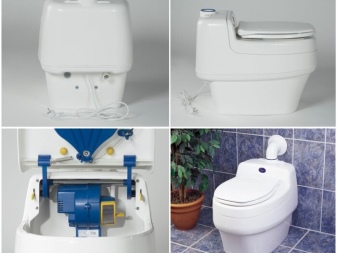
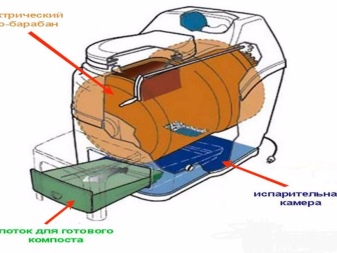
The electric dry closet does not require any consumables to operate. At the same time, in the absence of electricity, it cannot be used. This is attributed to the significant disadvantages of this type of structure. Another disadvantage of electric dry closets is their stationarity, which provides for the placement of structures in a separate room and the need to connect ventilation and electricity to them. It should also be noted that dry closets of this type are much more expensive than liquid and peat structures.
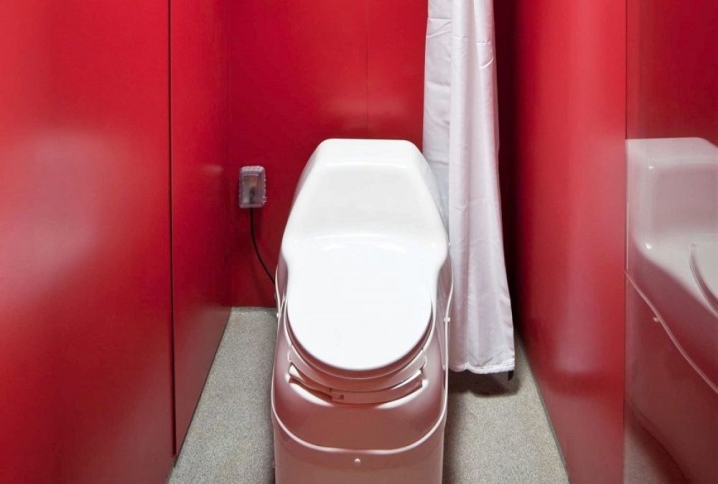
How to choose?
When buying a home dry closet, you need to consider a number of criteria that will allow you to choose the most suitable model. The most significant of them include the following:
- place of operation of the structure (private / country house or apartment);
- the number of users and their physical characteristics (elderly people, children, people with disabilities);
- the estimated frequency of using the dry closet (constantly or periodically).
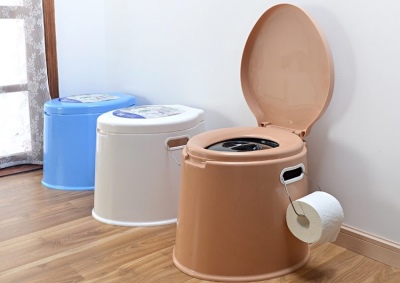
For small private (country) houses that do not have conditions for permanent residence and are not connected to a centralized sewage system, liquid models of dry closets are optimal, during the maintenance of which ammonium and biological compounds are used. In this case, the use of formaldehyde-based liquids is strongly discouraged (they can only be used if decomposed waste can be disposed of through a centralized sewage system).
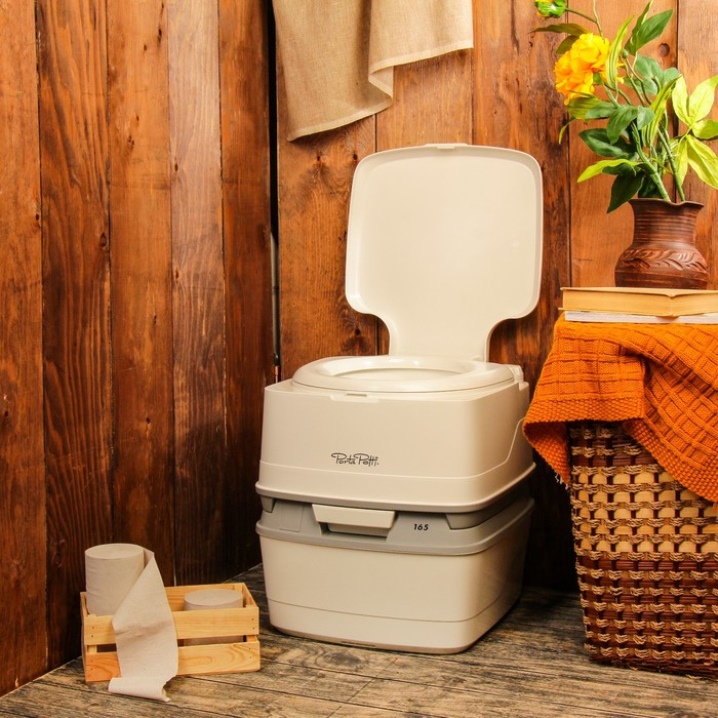
The mobility of liquid-type dry closets makes it possible to use them in city apartments. Compact models are often equipped with rooms in which children, sedentary elderly people and persons with disabilities live.
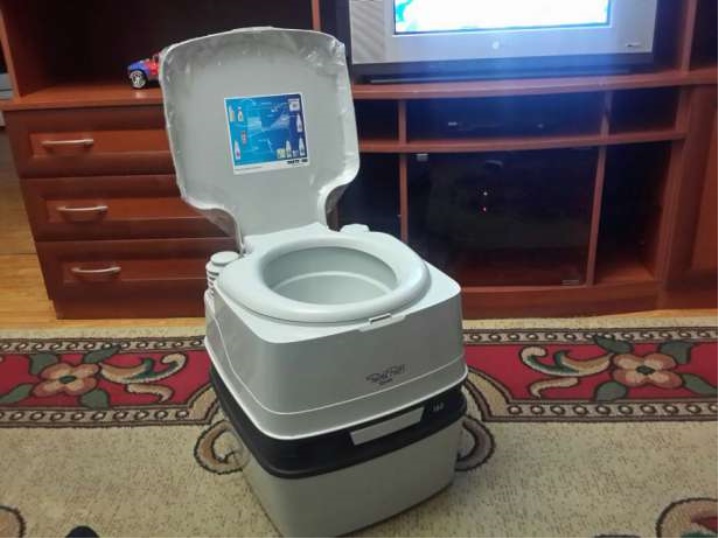
Peat and electric models are optimal for spacious country houses. Such dry closets are installed in a separate room equipped with a ventilation system. It should be borne in mind that electrical models also require a connection to a power source.
When choosing a dry closet, you should take into account the dimensions of the model you like. For small rooms, it is better to purchase structures of compact sizes. For trips, travels, periodic trips to nature or a summer cottage, lightweight portable models of low height that can be carried in the trunk of a car are suitable.
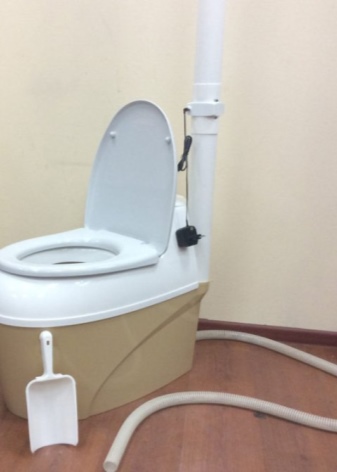
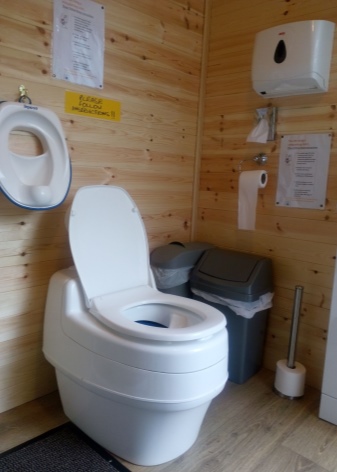
When buying a dry closet that provides for a stationary installation, you should pay attention to the product package. In some models, pipes and parts for connecting the device to ventilation are not included in the kit with the toilet (they will have to be selected and purchased separately).
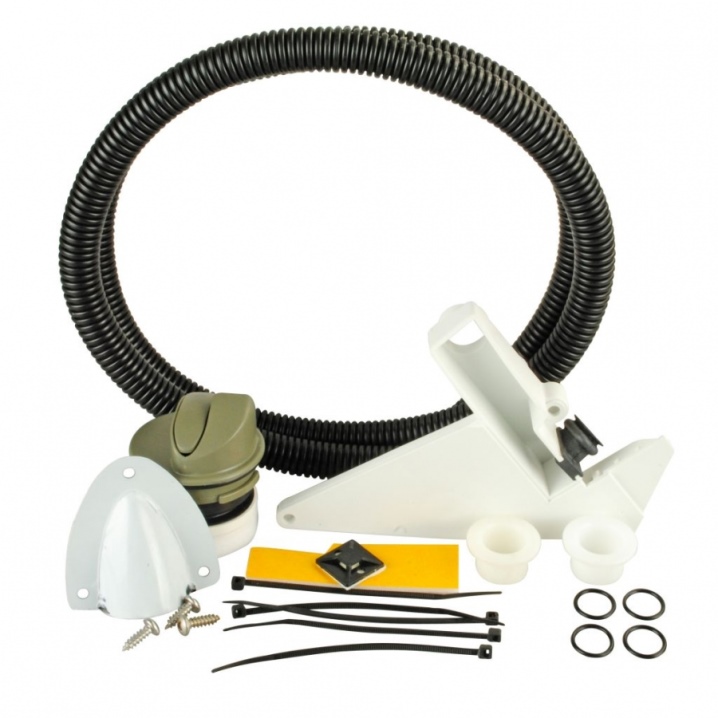
For tall people, manufacturers do not recommend purchasing low models of dry closets (below 50-55 centimeters). The same recommendation should be followed by those who are overweight.
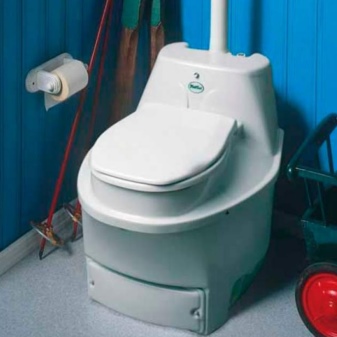
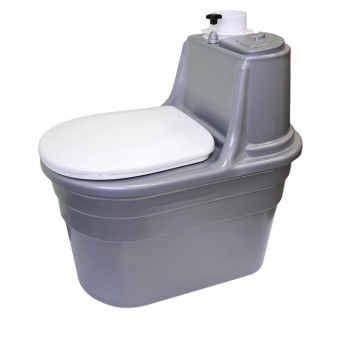
Top Models
In modern stores of goods for summer cottages and homes, a wide selection of liquid, electric and peat dry closets, both domestic and foreign, is presented. Below is a rating of the models that received high user ratings.
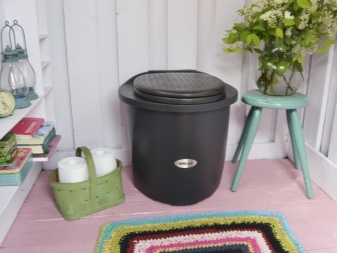
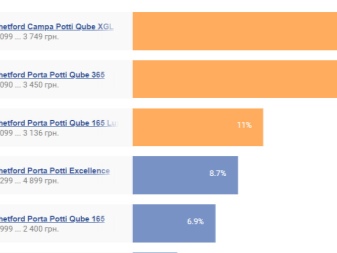
- Thetford Porta Potti 145 - portable budget mini-model of liquid type, equipped with a convenient siphon pump. It is easily placed and transported in the trunk of a car and is easy to use and maintain (clean). Has compact dimensions (38.3x33x42.7 cm), allowing the model to be used as a portable children's toilet.
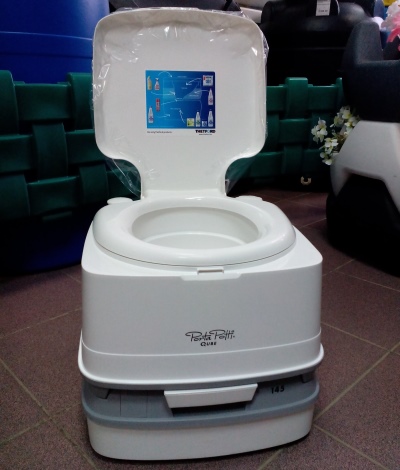
- EcoProm ROSTOK - an ergonomic peat dry closet that does not require connection to electricity and water supply. Visually it looks like a regular toilet and, according to users, differs from it only in the principle of operation. The body of the dry closet is made of chemically inert and non-combustible polymer material, resistant to solar radiation and temperature drops from -30 ° to + 60 °. The dimensions of the model are 79x82x61.5 cm, the seat height is about 51 cm.
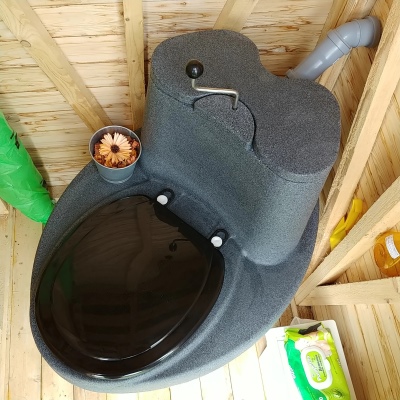
- Biolan Naturum - a comfortable peat model, suitable for year-round use both in country houses and in city apartments. This dry closet can be easily installed in a separate room, easily connected to the ventilation system (the ventilation pipe is included in the model package). The dimensions of the structure are 81x84x74 cm. The seat height, varying from 47 to 49 centimeters, allows both adults and children to use the dry closet comfortably.
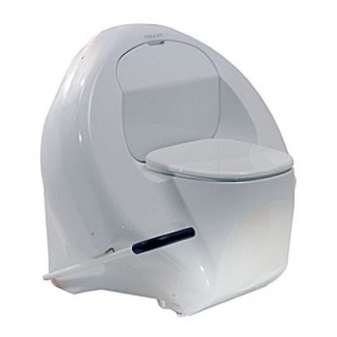
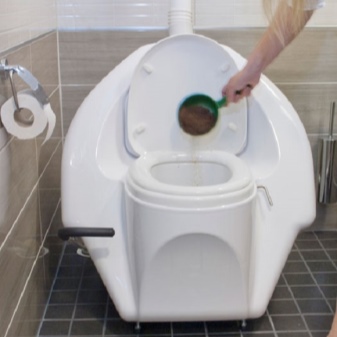
- BioLet 65 - an expensive but reliable and durable electric model that converts sewage into eco-friendly compost. Waste decomposition is carried out by supplying heat and air to the composting chamber. The decomposition process is accelerated by the automatic mixing of the contents of the chamber. The model requires a connection to a power source and a ventilation system. The dimensions of the structure are 66x65x81 cm.
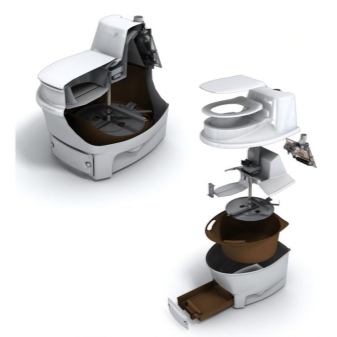
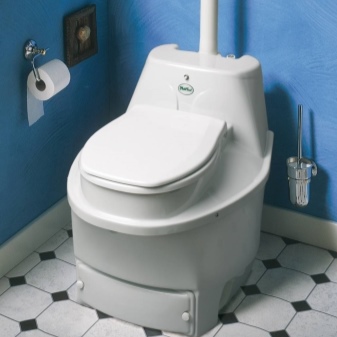
- Mr. Little mini 18 - a very compact and inexpensive liquid-type model, equipped with a convenient flush system and indicators that signal the filling of the storage tank. The model is made of frost-resistant durable plastic that is resistant to dirt. Compact dimensions (37x37x34 cm) and low weight (5 kg with an empty tank) allow you to use Mr. The Little Mini 18 is both a portable country toilet and a stationary indoor toilet for elderly care.
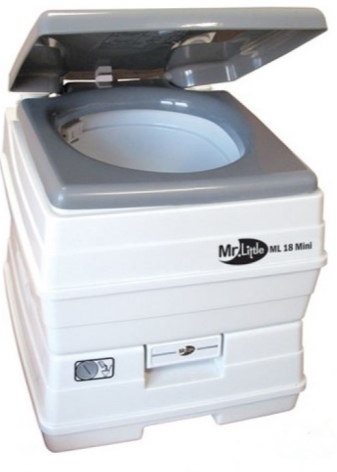
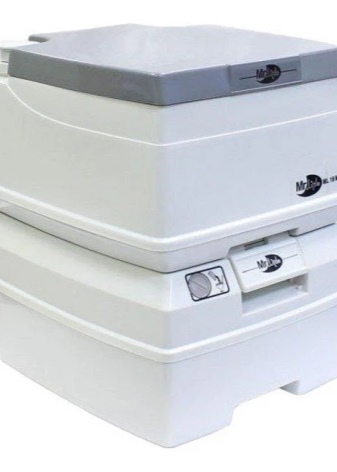
- WEEKEND 7011 - an inexpensive electric model from the Swedish manufacturer Separett, equipped with a fan. The body is made of impact-resistant ABS plastic, resistant to low temperatures. Waste entering the inner tank of the toilet is automatically separated into solid and liquid. Solid waste is collected in a polyethylene container, and liquid waste is discharged through a drainage hose into the ground (compost pit) or a separate tank. At the rear of the structure, there is a 7.5 cm hole for connecting ventilation. The dimensions of the model are 67.2x45.6x56.8 cm, the seat height is about 50 cm. This dry closet does not require peat or chemical or biological solutions to operate.
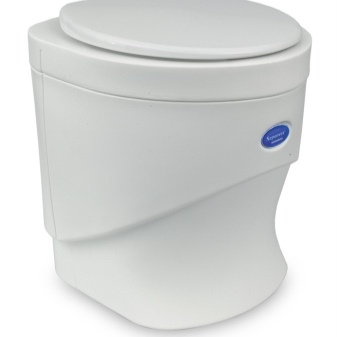
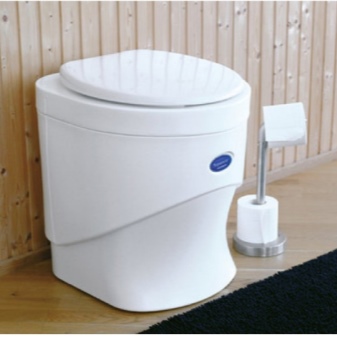
The following video provides an overview of the dry closet for the home.













The comment was sent successfully.